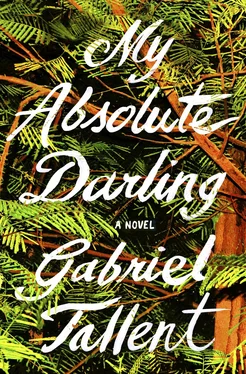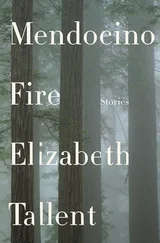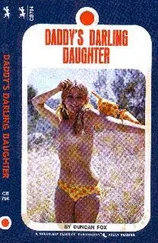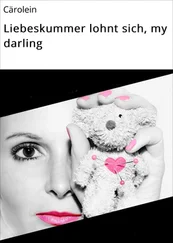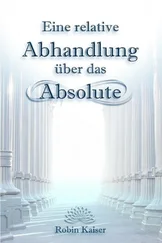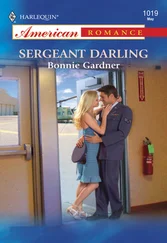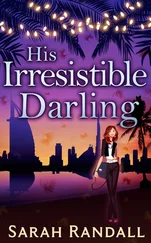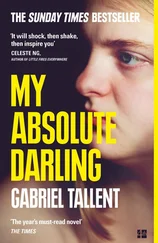“What thing?” she says again.
“Out in the Pacific Ocean,” Jacob says, “is a vast floating island of trash as big as Texas. A vortex of plastic bottles, Styrofoam coolers, packing peanuts, plastic bags mounded up on the hulks of half-sunk ships. Brett wants to go there and become pirates.”
“You’re not saying it right.”
“Brett wants to go there and become pirates !”
“Tell me that doesn’t sound awesome .”
“It doesn’t sound awesome,” Turtle says. Turtle doesn’t know why anyone would want to leave Mendocino. She has never understood the tourists, either. She doesn’t know what the point of it is.
“Although . . .” Jacob says.
“Here it comes,” Brett says.
“ Nation building ,” Jacob says, “has a certain appeal. Doesn’t it?”
“No,” Turtle says, “it doesn’t.”
“Founding a glorious republic,” Jacob says.
“Hmm,” Turtle says doubtfully. “Probably hard.”
“Reclaiming the flotsam and jetsam of a failing civilization, and from the ashes building a Utopia.”
“My parents were Utopians,” Brett says. “Now they’re divorced and my mom is tired all the time. She says she’s just plain worn out. She says, ‘Brett, honey, I’m worn out.’ Her hands hurt her. She’s a massage therapist. But she has arthritis. I’m telling you, that is not the way. Pirates . That is the way.”
“We could farm mealworms,” Jacob says, warming to the idea, “in our Styrofoam deserts. They can subsist entirely on plastic. I can see us now: farming our mealworms by day, and by night reading Plato aloud to one another beneath the constellations of a foreign sky, accompanied by the vast grind of an entire continent of plastic bottles churning in the current and by the ethereal whisperings of grocery bags saltating across the mounded plastic dunes.”
Turtle says, “I think you’re imagining the garbage island to be more interesting than it is.”
Brett says, “If you really did have a hundred miles of mealworms, I bet you’d hear them at night. Chewing. And chewing.”
“We could farm fish in vast nets made from knit-together plastic bags.”
“I can see us now: a wild and savage tribe of sword-wielding eco-pirates, as ruggedly handsome as we are visionary, crossing the mealworm barrens astride our giant war iguanas.”
“War iguanas?”
“ Obviously war iguanas.”
“If you think about it, there are probably iguanas there already, resident in that barren and postmodern Galápagos, each generation more shopping-bag-colored than the last.”
“ Dude.”
“And if we used rhizofiltration, we could recapture nuclear waste from the ocean and sequester it in giant laminated-glass tetrahedrons that would slowly warm the waters around our island so we could farm more fish.”
“Imagine the fecund, uranium-warmed lagoons, bounteous with farmed lobsters and kelp, patrolled by shoals of salmon, and lit from deep within by mysterious, glowing green pyramids, hung on vast, creaking anchor chains, while on the plastic shores above bask our noble if tempestuous reptilian steeds.”
The wind lifts stray hairs from her ponytail and whips them across her face. They stick to her chapped lips. She pulls them away, tucks them behind an ear. If there really is an island of trash out there the size of Texas, it’s just a shitty place and there’s no salvaging it. But she doesn’t need to tell them that.
They walk back up to Main Street discussing whether you could ride an iguana if it was big enough and if it would be appropriate to carry a trident and if giant laminated-glass tetrahedrons filled with nuclear waste could disrupt the currents of the entire ocean and cause a mass extinction event. They go into Lipinski’s Juice Joint and when Turtle sees the prices chalked on the board, she begins cracking her knuckles. Jacob pulls out his wallet and unfurling the bills, says, “It’s okay, Turtle,” and Brett says, “The movie about us could be called A Fistful of Mealworms ,” and Jacob says, “Hey, Dean, we’re starting our own republic, are you interested at all?” and the bearded, gauged barista says, “Will there be tourists?” and Brett says, “No,” and the barista says, “Will there be weed?” and Brett says, “As pirates, our primary intoxicant will obviously be rum, but yes,” and Jacob says, “We’re going to farm psychotropic sea toads in shallow lagoons warmed by nuclear waste and you can lick those to get high,” and Dean says, “What?” and Turtle won’t order, so Jacob says, “She’ll have the falafel. At least I think so. She’s been struck mute by capitalism,” and Dean says, “It’s the damn tourists. It’s always been bad, of course, but we were featured again in the New York Times . I read that, in Mendocino, a hundred dollars only buys you, like, eighty-two dollars’ worth of stuff,” and Brett says, “That literally makes no sense. By definition, a hundred dollars buys you a hundred dollars’ worth of stuff,” and Dean says, “It’s the damn tourists,” and Brett says, “Okay, Dean, I get it that you don’t like the tourists, but they cannot be blamed for ills that are, by very definition, impossible.”
They sit at a wooden table out on the deck in the shadow of a water tower. The fence is overgrown in morning glory. Dean brings out three mocha glaciers, holding the glasses all together and all of them sweating chips of ice with the blended mocha mounded as thick as ice cream. They eat the messy cucumber and falafel pitas, discussing if you could really farm salmon in giant tanks of welded-together plastic bottles and if you could feed them mealworms raised entirely on plastic. The hard thing, Jacob keeps saying, is that mealworms should be fine, but they mature into poisonous beetles. Turtle has never had coffee and it makes her hands shake. Her pita falls apart and she keeps having to lick her fingers clean, looking at the boys to follow the conversation.
Jacob looks at Turtle. “Want to come over?”
“Yeah,” she says.
“Need to call your dad?”
“Not really,” she says.
“Yeah?” Jacob says.
“Yeah,” she says.
At five o’clock they meet Jacob’s sister, Imogen, who works at a coffee shop in town, and she drives them to Jacob’s house. Their feet and shins are still covered in thin layers of sand. Both boys get in the back. Turtle rides shotgun with Imogen, who looks curiously at her. Jacob leans forward between the seats to introduce them. “Turtle, Imogen. Imogen, this is the chain-saw-wielding, shotgun-toting, Zen Buddhist, once-and-future queen of postapocalyptic America.”
“Charmed,” Imogen says, pulling out of the parking space.
“Her reign will be hard but fair.”
“In our advisory roles, we will council fairness.”
“But no one can entirely temper the stoical hardness that is her essential nature.”
“And how did you meet my stupid brother?”
Turtle says nothing.
“Oh, come on, how’d you meet?”
Turtle looks back at Jacob. Both boys are reading, Brett leaning against the passenger-side door with A Rage for Revenge , Jacob sitting upright with The Iliad.
They drive in silence for a while.
“So, Jacob—is this the chick that saved your dumb, lost life when you were lost in the woods?”
“We weren’t lost.”
“It sounded like you were lost, though. Like, super lost.”
“We weren’t. We knew where we were. We didn’t know where the road was.”
“So—lost, then.”
“We weren’t lost.”
Imogen says, “So, uh—Turtle, how do you like school?”
“Fine.”
“Where do you live?”
“Little River.”
Читать дальше
Конец ознакомительного отрывка
Купить книгу
